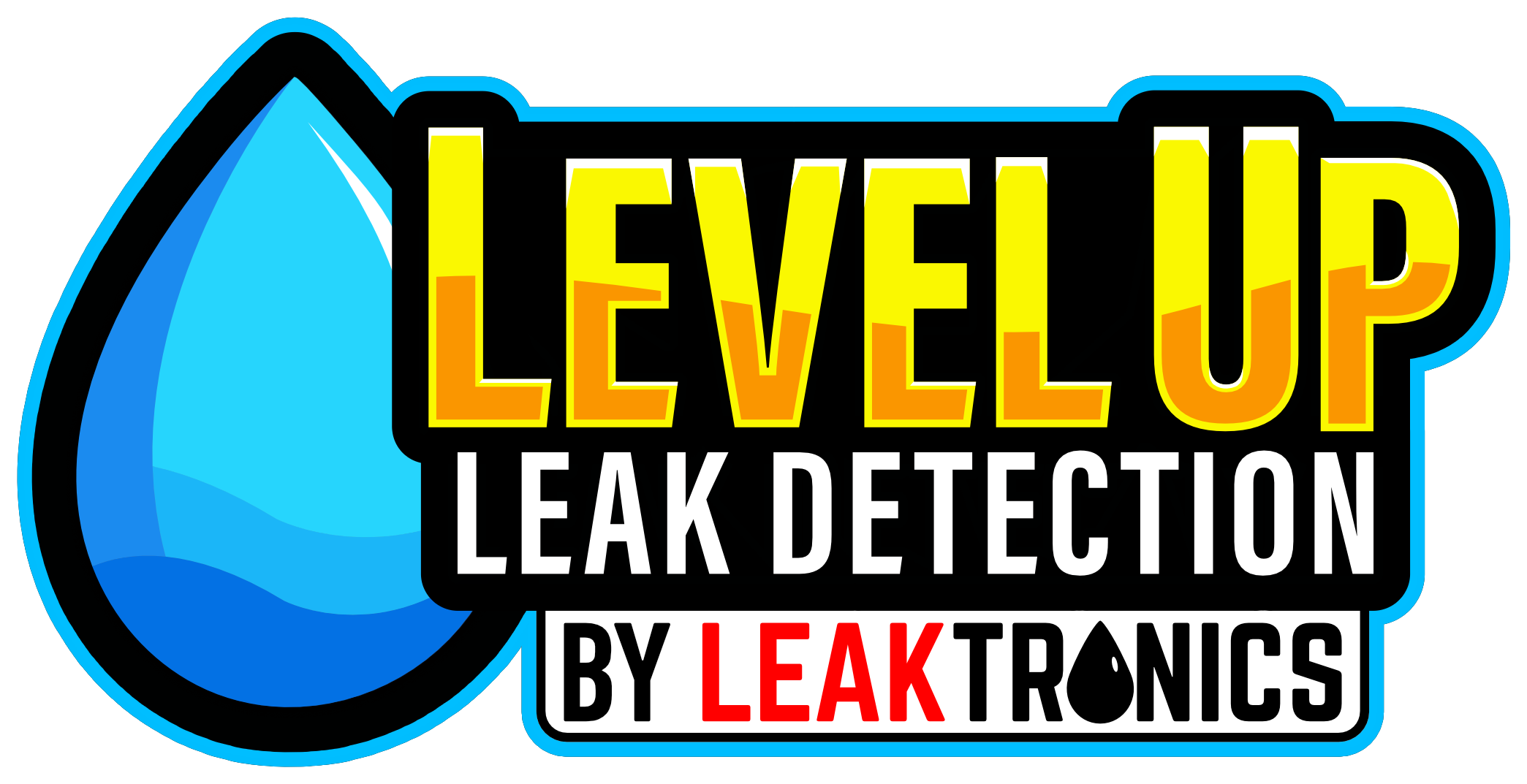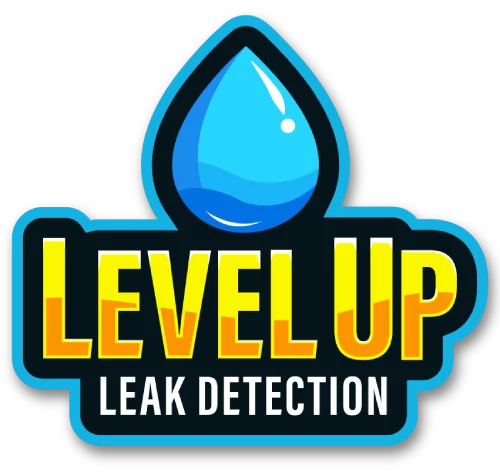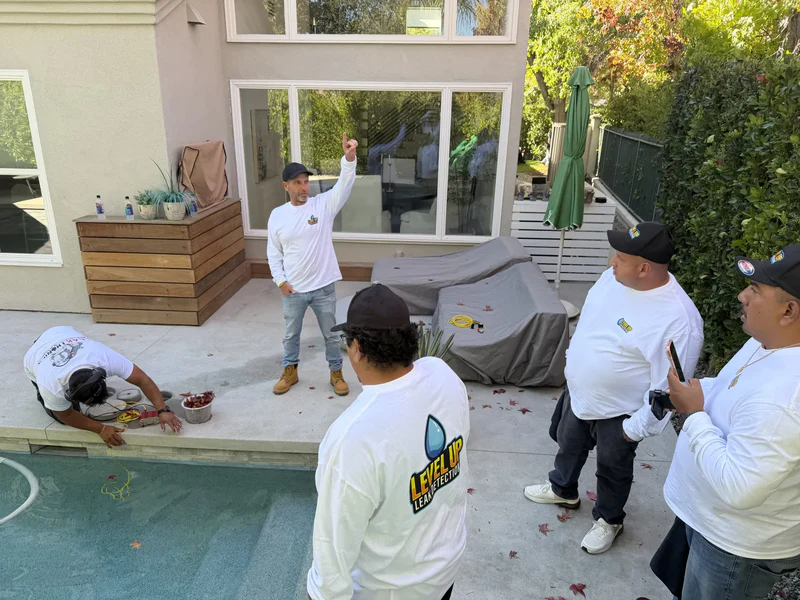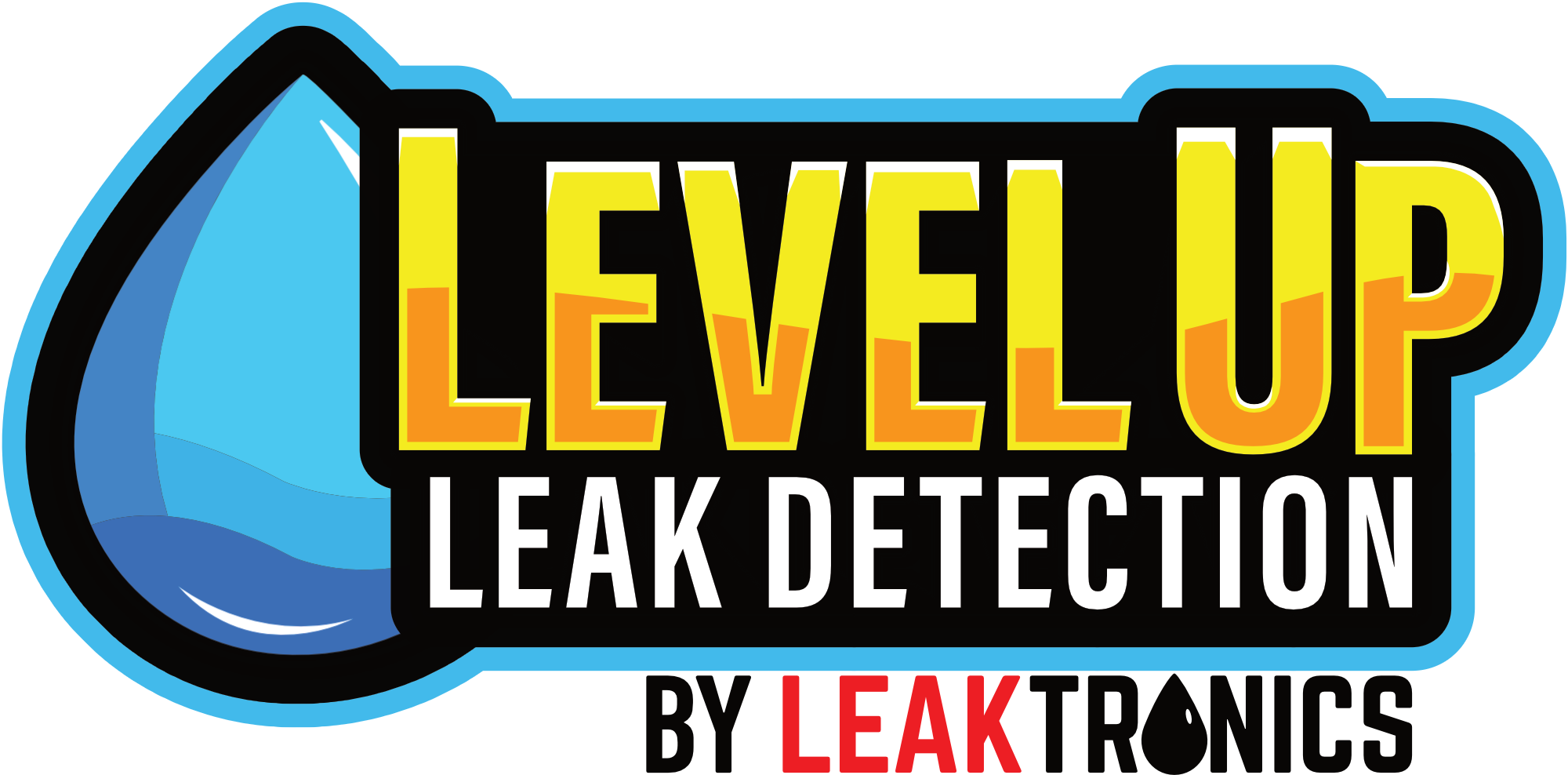How Much Water Does America Waste? Pool Leak Detection & Repair Specialists Explain
Discover how much water America wastes, how pool leaks contribute, and how expert pool leak detection and repair can save water.
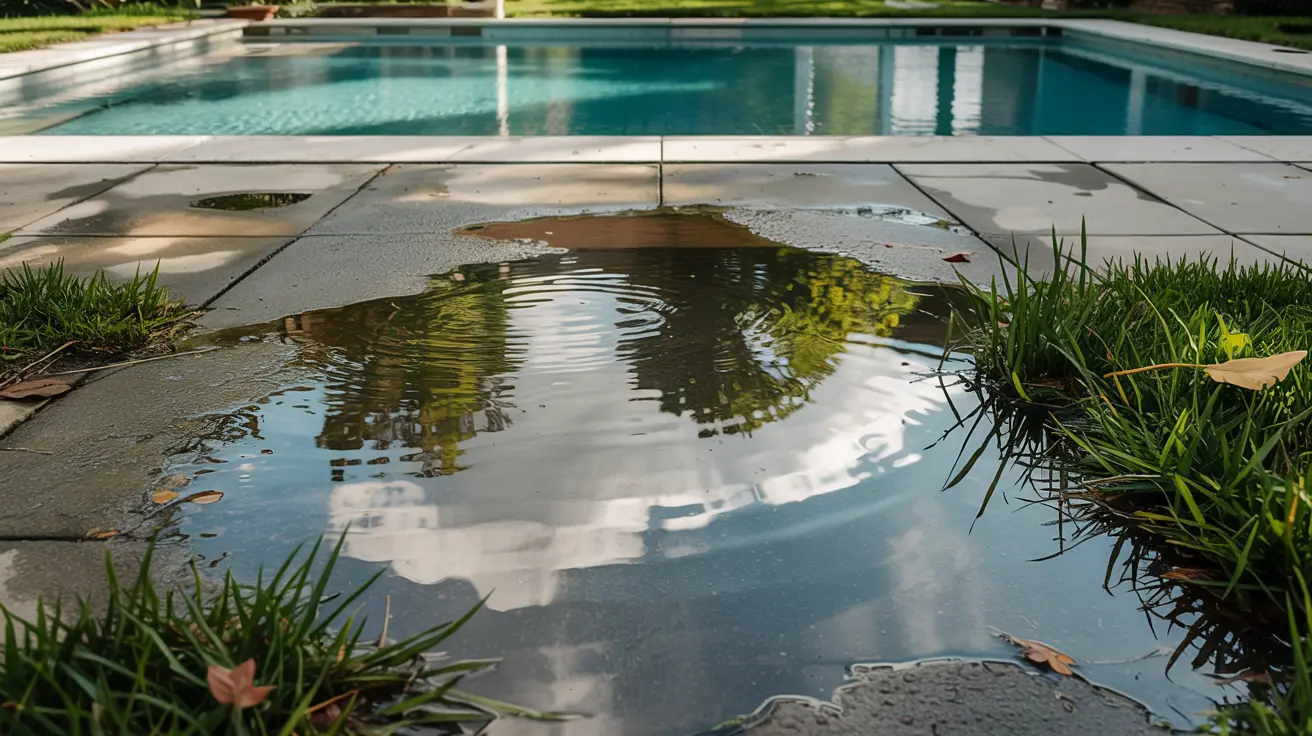
Every year, America wastes staggering amounts of water—much of it silently leaking away from our homes, pools, and landscapes. With water bills rising and droughts becoming more common, understanding and preventing water waste is more important than ever. In this article, we’ll dive into the latest water waste statistics, reveal how leaks (especially in pools) contribute to the problem, and show how pool owners can make a real difference. If you own a swimming pool, spa, or fountain, you’ll learn how professional pool leak detection and repair not only saves water but also protects your investment and lowers your bills. Read on to discover how Level Up’s leak detection specialists can help you stop water waste in its tracks—while enjoying a healthier, more sustainable pool.
How Much Water Does America Waste Every Year?
America’s water waste is truly eye-opening. According to the EPA, household leaks alone waste more than 1 trillion gallons of water each year—enough to supply over 11 million homes. The average American family wastes up to 9,400 gallons annually just from leaks, and the country as a whole uses an astonishing 322 billion gallons of water every day.
Outdoor water use, including pools, makes up more than 30% of household water consumption and can soar to 60% in dry regions. This means pools are a significant contributor to national water waste, especially when leaks go undetected.
What Are the Main Causes of Water Waste in the U.S.?
Water waste in America comes from many sources, but leaks are a leading culprit. Here are the main contributors:
- Leaky pipes and fixtures: Even a tiny drip can waste thousands of gallons per year.
- Inefficient irrigation: Poorly maintained sprinklers and hoses lose up to 50% of water to wind, evaporation, and runoff.
- Household habits: Leaving the tap running, overwatering lawns, and ignoring small leaks all add up.
- Swimming pools and spas: Pool leaks, backwashing, and evaporation can waste tens of thousands of gallons annually.
In fact, 10% of homes have leaks wasting 90 gallons or more per day. Fixing these issues is one of the easiest ways to conserve water and save money.
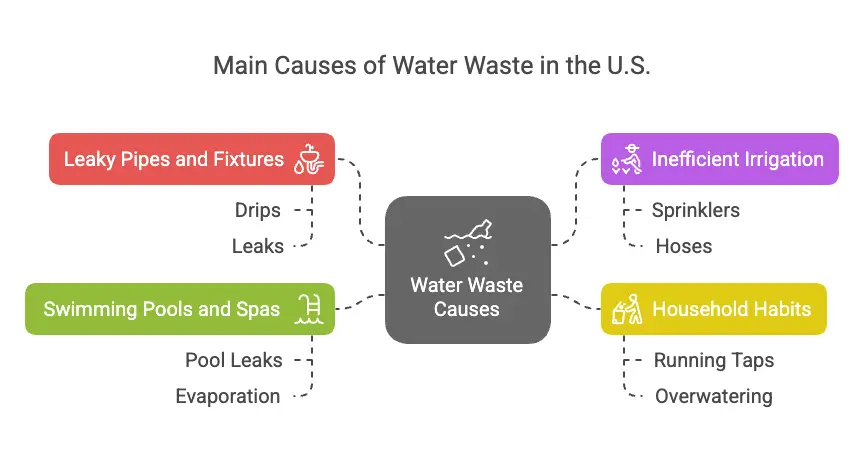
How Do Pool Leaks Contribute to Water Loss?
Pools are a hidden source of water waste. A typical pool loses 1/4 to 1/2 inch of water daily through evaporation, but leaks can cause much greater losses—sometimes thousands of gallons per month.
Pool leaks don’t just waste water; they also let pool chemicals seep into the ground, potentially harming soil and groundwater. A leaky pool can also lead to structural damage, higher maintenance costs, and skyrocketing water bills.
Why Is Pool Leak Detection So Important?
Pool leak detection is crucial for several reasons:
- Water conservation: Every drop saved reduces strain on local water supplies.
- Lower bills: Stopping leaks means less money spent on water and chemicals.
- Protecting your pool: Early leak detection prevents costly repairs and damage to your pool’s structure and equipment.
- Environmental impact: Preventing chemical leaks protects the environment and local ecosystems.
By investing in regular pool leak detection, you’re not just saving water—you’re protecting your property and the planet.
How Can You Tell If Your Pool Is Leaking or Just Evaporating?
It’s normal for pools to lose some water to evaporation, but excessive loss is a red flag. Here’s how to tell the difference:
- Evaporation: Most pools lose 1/4 to 1/2 inch per day due to heat, wind, and humidity.
- Leak: If your pool is losing more than 2 inches per week, or if you notice wet spots, algae growth, or rising water bills, you likely have a leak.
Try the bucket test: Fill a bucket with pool water and place it on a pool step. Mark the water levels inside the bucket and on the pool wall. After 24-48 hours, if the pool water level drops more than the bucket’s, you have a leak—not just evaporation.
What Are the Most Common Causes of Pool Leaks?
Pool leaks can occur in several places:
- Cracks in the pool shell (plaster, vinyl, or gunite)
- Damaged skimmer boxes or light fixtures
- Loose tile grout or coping
- Faulty plumbing connections or pipes
- Worn-out pump seals or pool equipment
- Damaged vinyl liners or fittings
- Leaky main drain or hydrostatic valve
Identifying the exact location of the leak is the first step toward effective repair.
What Are the Best Methods for Pool Leak Detection?
There are several proven methods to locate pool leaks:
- Visual inspection: Look for cracks, wet spots, or water stains around the pool and equipment.
- Bucket test: Distinguish between evaporation and leaks.
- Dye test: Use pool leak detection dye near suspected areas (skimmer, drain, light) and watch if the dye is pulled into a crack or fitting.
- Pressure testing: Check plumbing lines for pressure loss, indicating a hidden pipe leak.
- Advanced technology: Professional leak detection uses acoustic sensors, hydrophones, and state-of-the-art equipment to pinpoint leaks—even those underground or underwater.
How Does Professional Leak Detection Work?
Professional pool leak detection services, like those offered by Level Up, use innovative methods and advanced technology to accurately locate leaks:
- Acoustic sensors and hydrophones detect the sound of escaping water.
- Pressure testing identifies leaks in pipes and plumbing.
- Underwater inspection with goggles and specialized tools helps pinpoint cracks or holes.
- Detailed reporting ensures you know the exact location of the leak and the best repair options.
Our highly-trained technicians have years of experience and use non-invasive techniques to minimize disruption and maximize accuracy.
What Are the Benefits of Timely Pool Leak Repair?
Repairing leaks quickly offers big benefits:
- Save thousands of gallons of water per year
- Lower your water and chemical bills
- Prevent costly damage to your pool, deck, and landscaping
- Reduce energy use for heating and pumping
- Protect the environment from chemical runoff
Level Up offers pool leak detection and repair with a warranty, so you can enjoy peace of mind and a healthy, efficient pool.
What Can Pool Owners Do to Prevent Water Loss?
Pool owners can take several steps to reduce water waste:
- Use a pool cover: Reduces evaporation by up to 95%.
- Install windbreaks: Fences or shrubs around the pool help minimize evaporation.
- Shut off water features: Turn off fountains and waterfalls when not in use.
- Inspect regularly: Check for leaks, cracks, and equipment issues monthly.
- Schedule annual professional inspections: Catch small problems before they become big ones.
- Maintain proper chemical balance: Reduces the need for draining and refilling.
- Educate your family: Teach everyone to avoid unnecessary splashing and overfilling.
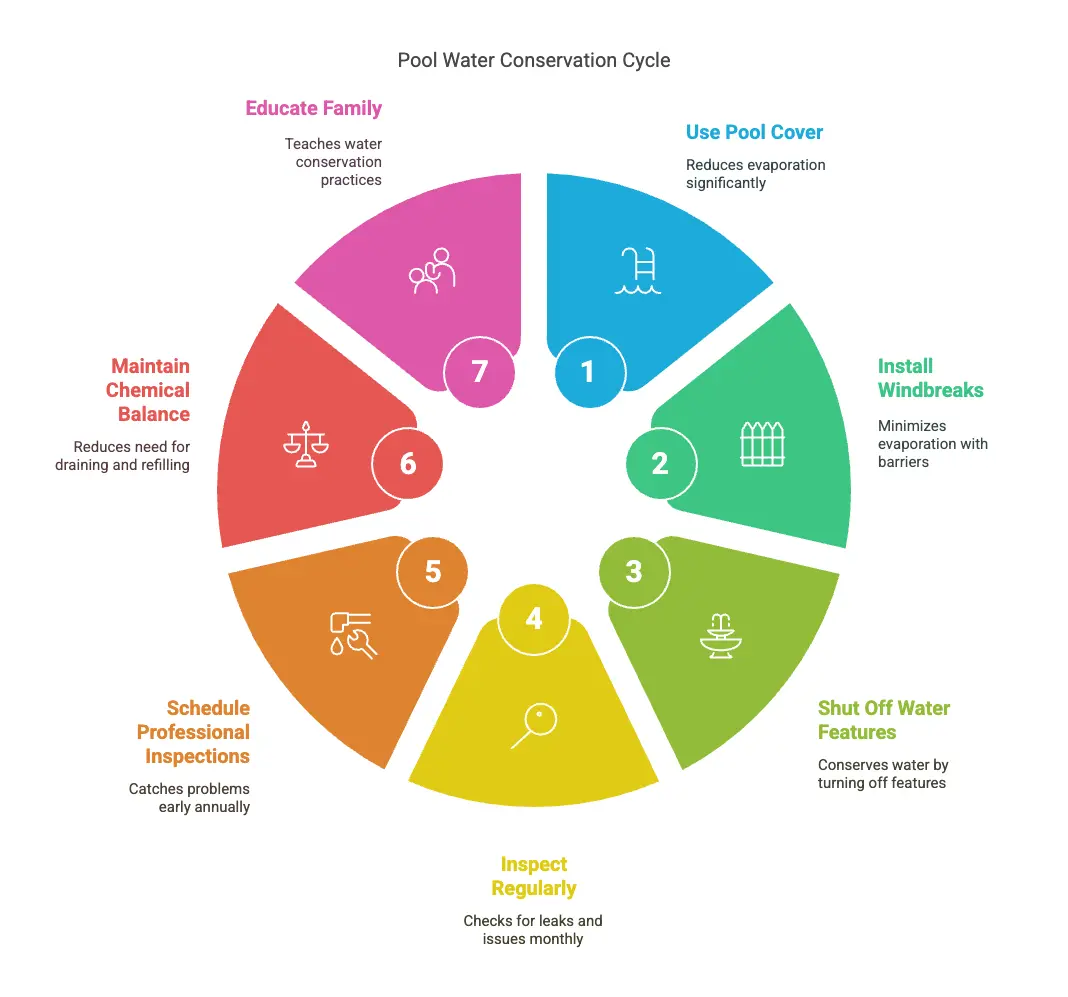
Key Takeaways
- America wastes over 1 trillion gallons of water each year due to household leaks—many from pools.
- Pool leaks can waste thousands of gallons, raise bills, and cause costly damage.
- Regular pool leak detection and repair is essential for water conservation, lower costs, and pool longevity.
- Use simple tests like the bucket and dye test to spot leaks early.
- Professional leak detection uses advanced technology for accurate, non-invasive results.
- Cover your pool, inspect regularly, and call Level Up for expert pool leak detection and repair.
- Every drop saved helps your wallet, your pool, and the environment.
Ready to stop water waste? Contact Level Up for local pool leak detection and repair specialists—protect your pool, save money, and do your part for a sustainable future!
